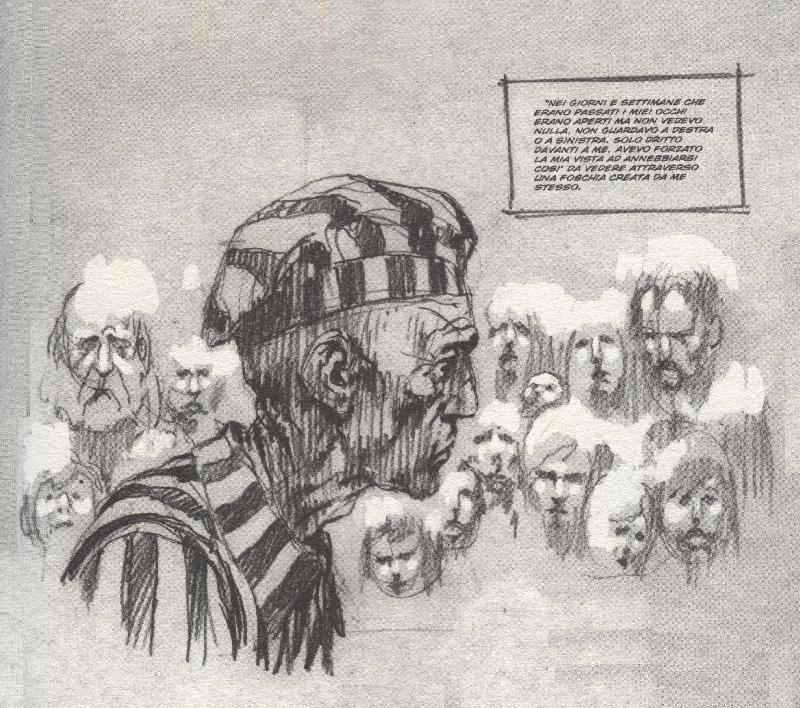I don't remember buying Yossel: April 29, 1943, but it's been in my collection for many years, always jumping up at me and imploring me to give it a good hearty well-considered read. I've never done it until now. Joe Kubert is an artist I admired immeasurably before, and after reading this woeful tale of a young boy in the Warsaw Ghetto striving to survive in the maw of the machinery the Nazis specifically built to kill Jews and others undesirables, I admire his talent and skill even more.
Yossel is represented from Kubert's pencil art, and he says in an introduction it was so that the immediacy and power of his pencils would not be lost or blunted by later considered inking. The story itself concerns a young man who is an artist and who is saved by using his art. The drawings here seem to be the very art we are reading about. Here Kubert reflects and imagines what his life might've been had his family not persisted and had not escaped the clutches of the Nazi regime. He imagines in horrific detail what a young Joe Kubert ("Yossel" is a Yiddish form of "Joseph") might've seen and experienced in the bloody horror of the Holocaust.
The grinding details of the suffering of the Jews at the hands of the Nazis are sometimes hard to read, and even with all my years on this Earth, I am at a loss sometimes to understand how men could do this to other men, women and children. But it is a lack of imagination on my part, the terrible minds of evil men are brimming with ways to hurt and destroy others. I live in a country which despite its bravado and bluster all too often shows a disregard for the poor, for the outsider in society, but the Nazi state was using its terrible powers to mechanically eliminate and murder an entire culture by killing one by one the people who were that culture. It's still shocking or ought to be. The story of Yossel makes it shocking all over again.

(It occurs to me that the resettlement of the Native Americans to "reservations" was not that dissimilar, at least in its goal to isolate out the different for purposes of making wealth and power.)
Note: This post originally appeared at Rip Jagger's Other Dojo.
Rip Off





No comments:
Post a Comment